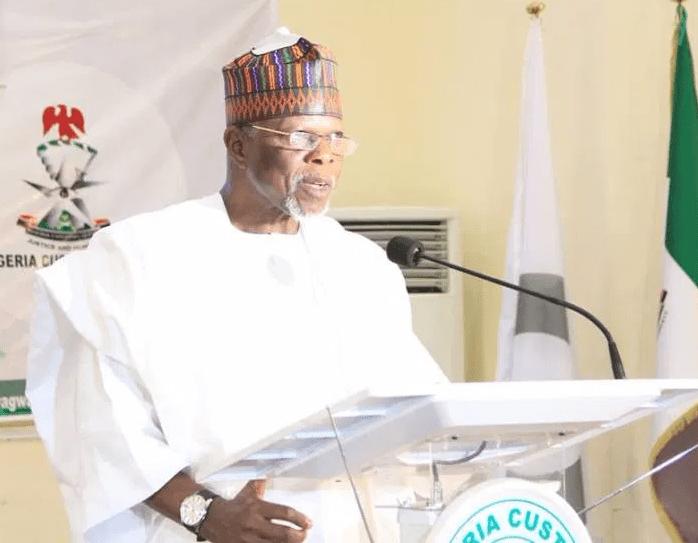Customs Report
Stakeholders Kick As Customs Begin Implementation of 35% CET

BY EGUONO ODJEGBA
The Nigeria Customs Service has commenced the implementation of the latest version of the ECOWAS Common External Tariff, 2017- 2021, reportedly in in-line with the World Customs Organization, WCO, five years review of the nomenclature.
According to a statement by the NCS, the migration from the old CET to the new version (2022- 2026) takes immediate effect.
But stakeholders have lamented that the government is overheating the port economy with adverse multiplier effects on the national economy.
The statement by the Customs Public Relations Officer, Deputy Comptroller Timi Bomodi hinted that contracting parties are expected to adopt the review based on regional considerations and national economic policy.
Accordingly, he said the NCS nation has adopted all the tariff lines approved by the WCI with few adjustments in the extant CET, by retaining 20% duty for used vehicles and 15% National Automative Council, NAC Levy.
The statement reads, “On Friday the 1st of April 2022, the Nigeria Customs Service migrated from the old version of the ECOWAS Common External Tariff, 2017- 2021, to the new version, 2022- 2026. This is in-line with WCO five years review of the nomenclature.
“As allowed for in Annex II of the 2022-2026 CET edition, and in line with the Finance Act and the National Automotive policy, NCS has retained a duty rate of 20% for used vehicles as was transmitted by ECOWAS with a NAC levy of 15%.
“New vehicles will also pay a duty of 20% with a NAC levy of 20% as directed in Federal Ministry of Finance letter ref. no. HMF BNP/NCS/CET/4/2022 of 7th April 2022.”
He explained that the development is tailored to support the growth of the associated sub sectors.
“It is instructive to note that domestic fiscal policy on the importation of motor vehicles and other items is targeted at growing the local economy in these sectors.
“The focus of NCS is on implementation of these policies in the hope that it achieves its desired objectives in line with National Automotive Policy and other fiscal policies of government.
“The NCS has also activated the use of Chapters 98 and 99 of the CET, in accordance with WCO recommendation for national use by contracting parties, which in our case promotes industrialization through sectoral and sub-sectoral incentives for members targeted at economic growth, enhancement of security and minimized consumption of unwholesome goods.”
The customs spokesman further explained that the associated policy actions are designed in part to create jobs through transfer of skills.
“It should also be noted that the Automotive industry, bonafide assemblers, manufacturers of auto spare parts and other local manufacturers enhance technology transfer and skill acquisition, create jobs and increase per capita income.”
Giving the breakdown of the new policy template, Bomodi said the duty variations has been so structured to offer a win-win window for both government and stakeholders.

“In Chapter 98 of the current CET – Bonafide Assemblers importing Completely Knocked Down, CKD, and Semi Knocked Down, SKD, are to enjoy a concession of 0% and 10% Duty rate respectively.
“While within ECOWAS, duty rate for same items are 5% and 10% respectively.
Incentivizing their efforts through policy interventions guarantees a win-win situation for the nation in the long run.”
Reacting, front-line customs broker and ship agent, Prince Olayiwola Shittu said although the NCS cannot be blamed, he warned that introduction of regular wrong policies cannot have positive impact on national growth.
“NCS is hardly to blame, their job is to implement FGN policies.To me when the government continues to take a wrong turn, the economy suffers. Policy somersaults result in negative economic developments.
“At a time like this, we expect our leaders to step in diligently. Meanwhile our leaders takes combative steps rather than engage the right authority and present genuine concerns.”
Commenting, former President, National Association of Government Approved Freight Forwarders, NAGAFF, Dr. Eugene
Nweke faulted Customs for introducing the NAC Levy of 15% additional to the general duty rate for an imported vehicles.
He argued that not stopping at implementing the latest version of CET amount to official high-handedness and lack of consideration for the organised private sector.
“Nigeria Customs said based on regional considerations and national economic policy the nation has adopted all tariff lines with few adjustments in the extant CET.
“Customs action depicts the fact that yes, we have endorsed the extant CET, but have also done our own adjustment to accommodate the NAC Levy of 15% additional to the general duty rate for an imported vehicle.
“While it is possible that other signatory nations are simply implementing the CET Extant law, our Customs feels that our own industry must be screwed tight with the imposition of the 15% NAC Levy.”
He lamented that while the NCS has turned itself into policy making department, NAC levies so far collected on imported vehicles have not been properly accounted for or judiciously managed for national interest.
Also commenting, another notable customs broker and immediate past Tin Can Chapter Chairman of the Association of Nigeria Licensed Customs Agents, ANLCA, Prince Segun Odutan appealed to the relevant authorities to review some of its import policies he labeled as counterproductive to the growth of the port economy.
“There are too many import policies, some are counterproductive, yet government is talking about growth. Imagine at the same time you want the new version of CET implemented, you’re also pushing for implementation of NAC Levy, government is simply killing the economy”, he said.
This is even as Mojeed Akanni, incumbent ANLCA Tin Can Chapter Chairman bemoaned the situation as unfortunate and un-progessive, noting that the policy affects some general cargo. “honestly it is annoying, there is nothing we can do, it affects so many general cargo too. The finance ministry comes up with these policies and customs have no say but to implement.”




























